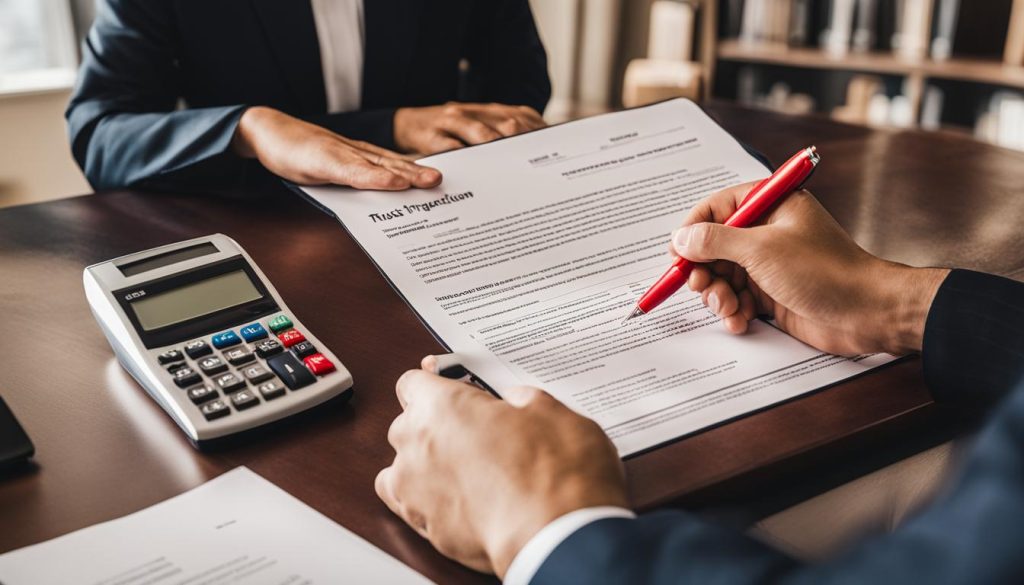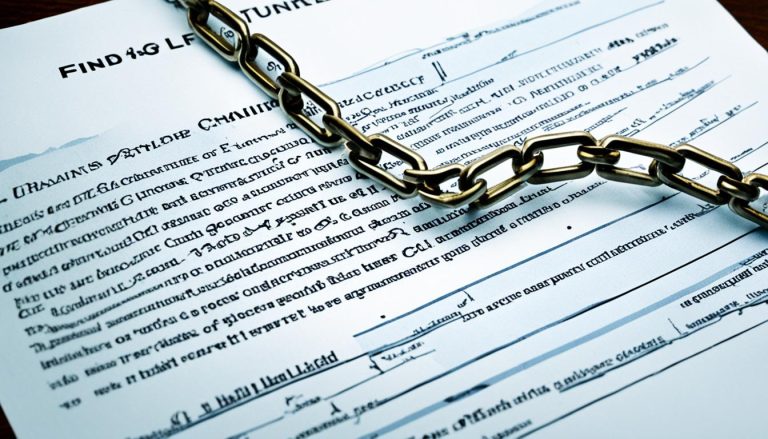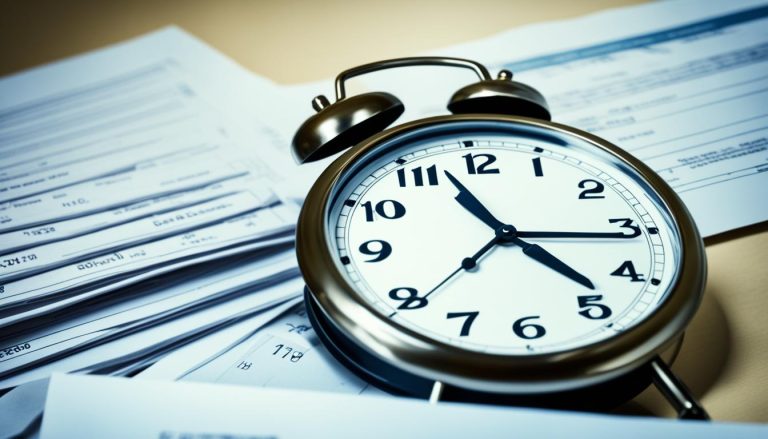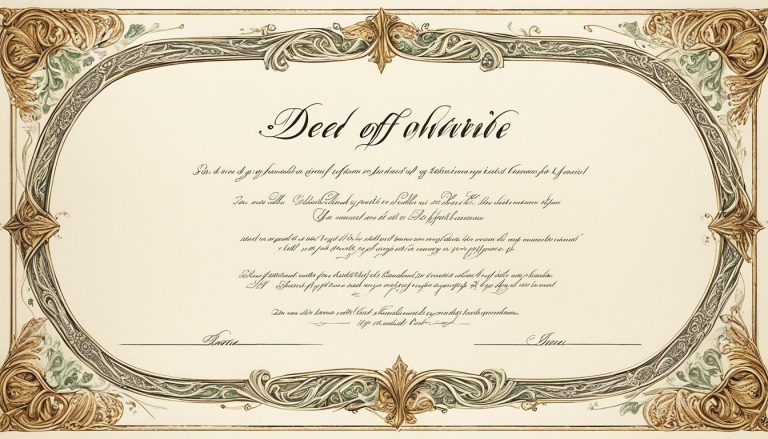Are you considering buying a property or taking out a loan? If so, you may come across the term “deed of trust.” But what exactly is a deed of trust and how does it impact your ownership rights and financial obligations? In this blog post, we will break down everything you need to know about deeds of trust, from how they work to their importance in real estate transactions. So grab your notepad and get ready to dive into the world of deeds of trust!
What is a Deed of Trust?
A Deed of Trust is a legal agreement that plays a crucial role in property ownership and asset protection in the UK. This document clarifies the division of ownership of a property, especially when multiple parties have bought a home together but contributed different amounts towards the purchase price.
By clearly stating the percentage of the property each owner owns, a Deed of Trust ensures that each party gets their fair share when the property is sold or if one of the owners wishes to be bought out in the future. It also includes additional details such as contributions, renovations, ongoing costs, and third-party investments.
Obtaining a Deed of Trust is recommended to protect the money invested in a property. It safeguards against disputes and misunderstandings that may arise in the future. Without a Deed of Trust, it can be difficult to determine who should be repaid and how much they are entitled to.
Solicitors or conveyancers can assist in obtaining a Deed of Trust, ensuring it is a legally binding document that accurately reflects the ownership division and financial arrangements of the property. While it is possible to draft your own Deed of Trust, seeking professional help offers added security.
Having a Deed of Trust in place is vital, as recent research shows that many individuals who bought a property together and later split up claim they lost out on their share due to the absence of a Deed of Trust. By securing your property ownership and asset protection with a Deed of Trust, you can have peace of mind knowing that your investment is safeguarded.
Why Should You Get a Deed of Trust?
A Deed of Trust is crucial for protecting your investment in a property and ensuring a fair division of ownership. Whether you are the owner or a third party contributing to the purchase, this legal document safeguards your interests and provides asset protection.
By clearly stating the financial contributions made towards the property, a Deed of Trust eliminates ambiguity and protects against any future disputes or misunderstandings. It acts as a solid foundation for property ownership, ensuring that each party receives their rightful share when the property is sold.
Research shows that individuals who bought a home but lacked a Deed of Trust faced losses in the sale proceeds when they split up. Without this legally binding document, determining repayment and entitlement becomes challenging, creating unnecessary conflicts.
Therefore, it is highly advisable to have a Deed of Trust in place to secure your property ownership and asset protection. By taking this proactive step, you can establish clear and fair terms for your financial investment, providing you with peace of mind and confidence.

Benefits of Getting a Deed of Trust
- Protects your financial investment in the property
- Ensures a fair division of ownership
- Minimizes the risk of disputes and misunderstandings
- Safeguards your assets for the future
- Gives you confidence and peace of mind
By obtaining a Deed of Trust, you establish a strong legal foundation for property ownership, protecting both your investment and your long-term interests. Don’t risk complications or conflicts down the line; secure your property and ensure a smooth and fair process when it comes to selling or determining ownership rights.
How to Obtain a Deed of Trust?
To obtain a Deed of Trust, it is recommended to seek the assistance of a solicitor or conveyancer. These legal professionals have the expertise and knowledge to draft a legally binding document that accurately reflects the ownership division and financial arrangements of the property. While it is possible to write your own Deed of Trust, it may not hold up in court if a dispute arises. The cost of obtaining a Deed of Trust varies depending on the individual charges of the solicitor or conveyancer and the complexity of the document. It is generally more cost-effective to have a Deed of Trust written up by the same legal professional handling the property purchase, as they will already have an understanding of the transaction.
Do You Need a Deed of Trust After Purchasing a Property?
After completing the purchase of a property, you may wonder if it is still necessary to obtain a Deed of Trust. The answer is yes. While a Deed of Trust is commonly associated with property transactions before the purchase is finalized, it can also be drawn up after the purchase has been completed. This ensures that the ownership division and financial arrangements are legally binding, providing clarity and protection for all parties involved.
Obtaining a Deed of Trust after purchasing a property involves a few essential steps. Firstly, a current valuation report of the property is required. This report ensures that all joint owners have a clear understanding of the property’s value, which serves as a basis for determining ownership percentages and financial contributions. Once the valuation is agreed upon by all parties, a solicitor can then draft the terms of the Deed of Trust.
The Deed of Trust document becomes legally binding from the date it is signed and witnessed. It is vital to have a witness present during the signing process to ensure the document’s authenticity and validity. The witness should be over 18 years old, possess full mental capacity, and have no relation to any of the parties involved. This adds an extra layer of assurance and credibility to the document.
If circumstances change after the Deed of Trust has been established, it is possible to make adjustments. Minor changes can be incorporated by adding a deed of variation to the original document. However, for more significant changes, it is advisable to have the Deed of Trust rewritten to accurately reflect the new circumstances. This ensures that the document remains up-to-date and in line with the current arrangements and requirements.

The Importance of a Deed of Trust After Property Purchase
By obtaining a Deed of Trust after purchasing a property, you secure the legal binding of ownership and financial arrangements. It provides clarity and protection for all parties involved, ensuring that everyone’s rights and interests are safeguarded. Additionally, having a Deed of Trust in place offers peace of mind, as it minimizes the risk of future disputes and conflicts by establishing clear guidelines for property ownership and financial obligations.
Overall, obtaining a Deed of Trust after purchasing a property is a prudent step to take. It reinforces the legal framework of your property ownership, provides a solid basis for financial arrangements, and protects your investment in the long run.
| Benefits of a Deed of Trust After Property Purchase |
|---|
| 1. Ensures legal binding of ownership and financial arrangements |
| 2. Provides clarity and protection for all parties involved |
| 3. Minimizes the risk of future disputes and conflicts |
| 4. Establishes clear guidelines for property ownership and financial obligations |
| 5. Protects your investment in the long run |
Declaration of Trust vs. Deed of Trust
While there is a distinction between a Declaration of Trust and a Deed of Trust in terms of technicality, the two terms are often used interchangeably. Both documents serve the purpose of legally binding agreements that specify the division of ownership and financial arrangements of a property.
A Declaration of Trust is commonly used when multiple parties have a stake in a property and there are no existing legal arrangements in place. It outlines the intentions and expectations of the parties involved and establishes their respective shares in the property.
A Deed of Trust, on the other hand, is a more comprehensive document that not only defines the ownership division but also includes additional clauses pertaining to legal ownership and provisions for the sale of the property. It provides a clear framework for the management, transfer, and potential sale of the property.
Both the Declaration of Trust and the Deed of Trust have legal implications and should be prepared correctly to ensure their validity and enforceability in a court of law. It is crucial to consult a legal professional to draft these documents accurately, taking into account the specific financial arrangements and legal considerations involved.

Key Differences between Declaration of Trust and Deed of Trust:
| Declaration of Trust | Deed of Trust |
|---|---|
| Establishes ownership shares | Establishes ownership shares and includes additional clauses |
| Used when no existing legal arrangements are in place | Used for comprehensive legal ownership and sale provisions |
| Specifies intentions and expectations | Provides a clear framework for property management and transfer |
| May require separate legal agreements for sale | Includes provisions for property sale within the document |
Conclusion
A Deed of Trust is a crucial legal agreement that provides a secure framework for property ownership and asset protection in the UK. By clearly defining each party’s share of the property and outlining financial arrangements, a Deed of Trust ensures fairness and clarity when the property is sold. It safeguards investments and protects against potential disputes or misunderstandings in the future.
While it is possible to create a Deed of Trust independently, it is advisable to seek the expertise of a solicitor or conveyancer. These legal professionals ensure that the document is legally binding and accurately represents the ownership division and financial arrangements. The cost of obtaining a Deed of Trust varies depending on the complexity of the document and the individual charges of the legal professional.
By having a Deed of Trust in place, individuals can confidently protect their interests and secure their property ownership. Whether you are purchasing a property with others or want to safeguard your investment, a Deed of Trust provides the necessary legal framework for property ownership and asset protection in the UK.






